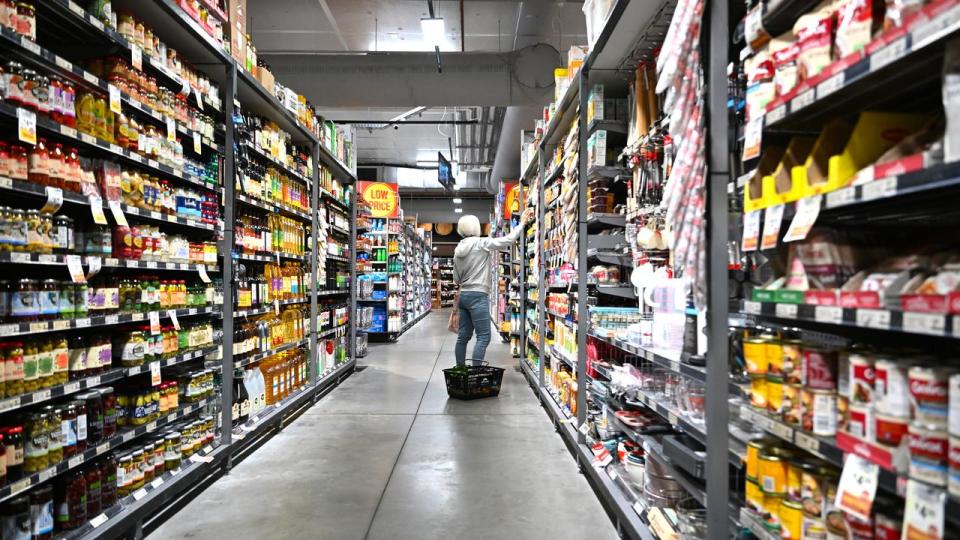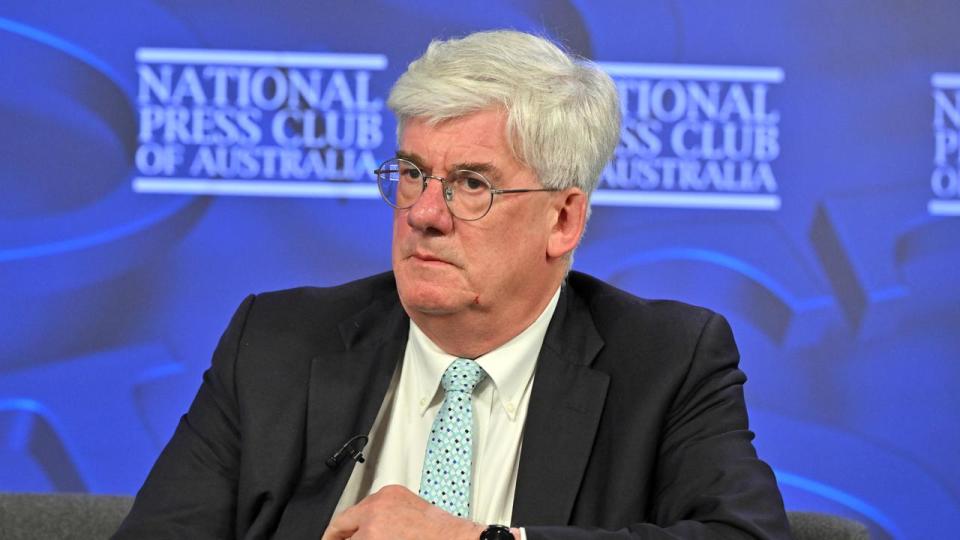Government defends faster inflation fall than RBA
The battle against inflation could still be won by Christmas based on official government forecasts - a lot faster than the latest Reserve Bank predictions.
Timing largely explains the gap, Finance Minister Katy Gallagher told ABC radio, with Treasury taking into account efforts to "put downward pressure on inflation" in Tuesday's federal budget.
"Obviously, those decisions weren't available to the Reserve Bank of Australia in issuing their forecasts," she said on Monday.
Treasury predictions in the budget show inflation sinking to 2.75 per cent by December, within the two-three per cent band targeted by the central bank.

That's well before the end-2025 forecast of the RBA outlined in the statement of monetary policy last week, along with upgraded near-term forecasts.
The central bank has inflation bumping higher from 3.6 per cent, where it was in the 12 months to March, to 3.8 per cent in the second half of the year, reflecting higher petrol prices and other lingering price pressures.
Those forecasts did not take into account yet-to-be-announced budget measures, however.
Opposition finance spokesperson Jane Hume said the government's outlook for growth was more optimistic than other economists predicted.
"It's certainly very different from the RBA forecast that was made only six days ago," she told ABC radio.
"I suppose it's really up to the treasurer now to tell us exactly how the government is going to bring inflation back down sooner."
Corinna Economic Advisory economist Saul Eslake said it was possible to offer financial relief while winding back inflation.
In the 2023 budget, energy bill relief, boosted commonwealth rental assistance and higher childcare subsidies helped alleviate pressures while pushing down those components of inflation.
"If the government repeats those kinds of measures again in the budget tomorrow night ... that will have a mechanical downward impact on inflation," Mr Eslake told Sky News.

Rich Insight economist Chris Richardson said government subsidies, both those he expected from the Commonwealth as well as the likes of the electricity subsidies in the Queensland budget, were sources of stimulus and "tend to boost inflation more than they cut it".
He said there was possibly another explanation for the difference between Treasury and RBA inflation forecasts - the government was more pessimistic about the economy than the central bank.
National growth forecasts previewed ahead of the budget show GDP of two per cent in the coming financial year and 2.25 per cent in 2025/26, both 0.25 per cent lower than previous Treasury forecasts.
The unemployment rate is also expected to rise from 3.8 per cent to 4.5 per cent over the next 12 months.
"In brief, Treasury may think the lift in spending by governments may be offset by weakening in spending by families at the shops," Mr Richardson said on Monday.
"That would leave Australia's fight against inflation slow but doable."
Prime Minister Anthony Albanese said he was delivering a "true Labor budget" as it would "help people under pressure right now".
"And that's what Labor governments always do, deal with urgent necessities that we have to deal with," he said.
"But always with our eye on a better future."

 Yahoo Finance
Yahoo Finance 